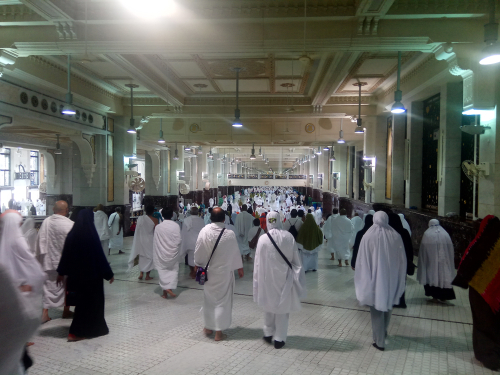What Should I Say at Safa and Marwa?
Hanafi Fiqh
Answered by Ustadh Sufyan Qufi
Question
My question is about the dua during the walk (sa’i) between Safa and Marwa. Do you have to say the du’a when you start at Safa and Marwa every time or you just say it once? Meaning, after saying you say it once you just say any other duas of your choice.
Answer
According to the Hanafi school, you can start using supplications ( du’as ) of your choice from the beginning of walk (sa’i) as you can see below:
The above is directly based on the practice of the Messenger of Allah (Blessings and Peace be upon him) as narrated in sahih Hadiths.
For example, in a lengthy Hadith, it is mentioned that when the Messenger of Allah (Blessings and Peace be upon him) had finished the circumambulation, he came to
Safa’, ascended it to a height from where he could see the Ka’ba, raised his hands (in prayer) and began to praise Allah and prayed what he wanted to pray. [Muslim]
Ustadh Sufyan Qufi is an advanced seeker of knowledge, originally from Algeria, who grew up in France. He began searching far and wide for answers to the fundamental questions of life and was disappointed at the answers he found. Then, he connected with various traditional teachers and gradually connected with SeekersGuidance. He embarked on his journey of learning through the various teachers at SeekersGuidance, including his mentor, Shaykh Faraz Rabbani. He studied numerous texts in Islamic Law, Theology, Hadith, and other areas with Shaykh Faraz Rabbani and other teachers, including Shaykh Abdurrahman al-Sha‘ar, Shaykh Ali Hani, and others. He is an active instructor at SeekersGuidance and answers questions through the SeekersGuidance Answers Service.
